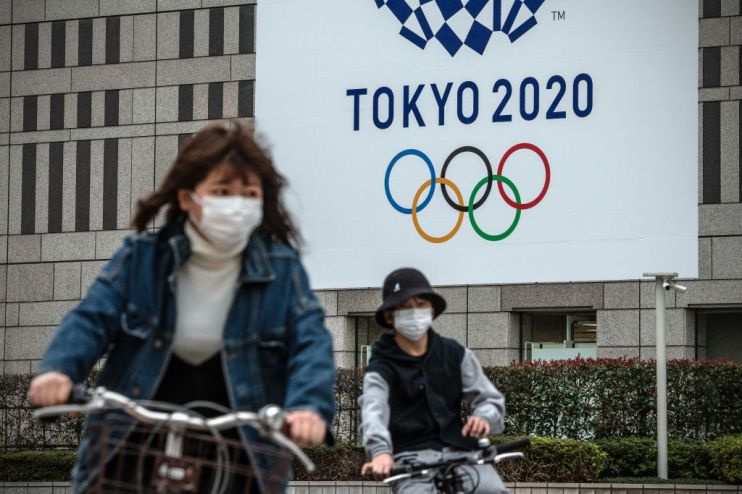The Week in Sportbiz: Fresh fears over Tokyo Olympics; Pound calls for athletes to jump vaccine queue; China’s $900m esports palace

Tokyo 2020 Olympics organisers have attempted to calm fears that the Games will not go ahead after a state of emergency was declared in the city.
Japan’s prime minister Yoshihide Suga announced the measures today in response to a steep rise in Covid-19 cases.
The Olympics was rescheduled in response to the pandemic last summer and the new start date of 23 July is less than 200 days away.
But organisers said: “This declaration of emergency offers an opportunity for Tokyo 2020 to plan for a safe and secure Games this summer.
“We will proceed with the necessary preparations accordingly.”
The cost of staging the Olympics and Paralympics in a more Covid-secure way has already added £2bn to the bill.
Tokyo received a boost this week, however, when all 64 domestic sponsors agreed to roll their contracts on to this year.
Japan Airways and Canon were among the companies to extend their support.
Athletes first for jabs?
Vaccination efforts should prioritise Olympic athletes if Tokyo 2020 is to avoid further delays or possible cancellation.
That is the view of Dick Pound, the longest-serving member of the International Olympic Committee.
Pound told Sky News: “It’s a decision for each country to make and there will be people saying they are jumping the queue but I think that is the most realistic way of it going ahead.
“In Canada, where we might have 300 or 400 athletes, to take 300 or 400 vaccines out of several million in order to have Canada represented at an international event of this stature, character and level I don’t think there would be any kind of a public outcry about that.”
Shanghai’s $900m esports palace
China has put its money where its mouth is as it bids to make Shanghai the international capital of esports.
Building work began this week on what is thought to be the single biggest esports project in the world.
The Shanghai International New Cultural and Creative Esports Center is consting $900m and is due to open in 2024.
As well as a 6,000-seat gaming arena, it will house hotels, museums, shops and a dance hall.
Tencent adds to NBA’s China crisis
If China is warming to esports, there is no sign of a thawing in its relationship with the NBA.
Tencent has now joined the boycott by apparently withholding coverage of Philadelphia 76ers matches.
The streaming giant’s move has been interpreted as being aimed at new 76ers president Daryl Morey, who spoke out in support of Hong Kong protesters in late 2019.
Houston Rockets fixtures have also received text-only coverage on Tencent since Morey’s comments, made when he was at the franchise.
Broadcaster CCTV, which holds the linear TV rights to show the NBA in China, has not shown a single game of the 2020-21 season.
NBA commissioner Adam Silver estimated last year that the stand-off with China had cost the league $400m.
Helmets for sale in NHL
US sports teams may not sell sponsor advertising on their kits, but the NHL is making an exception.
For the 2020-21 season only, franchises are permitted to advertise on players’ helmets during matches.
The ice hockey league says the move is designed to offset lost revenue due to the pandemic.
Leading teams are said to have asked $1m apiece from sponsors.
By comparison, Premier League football teams can earn up to £10m per season from sleeve sponsors alone.
